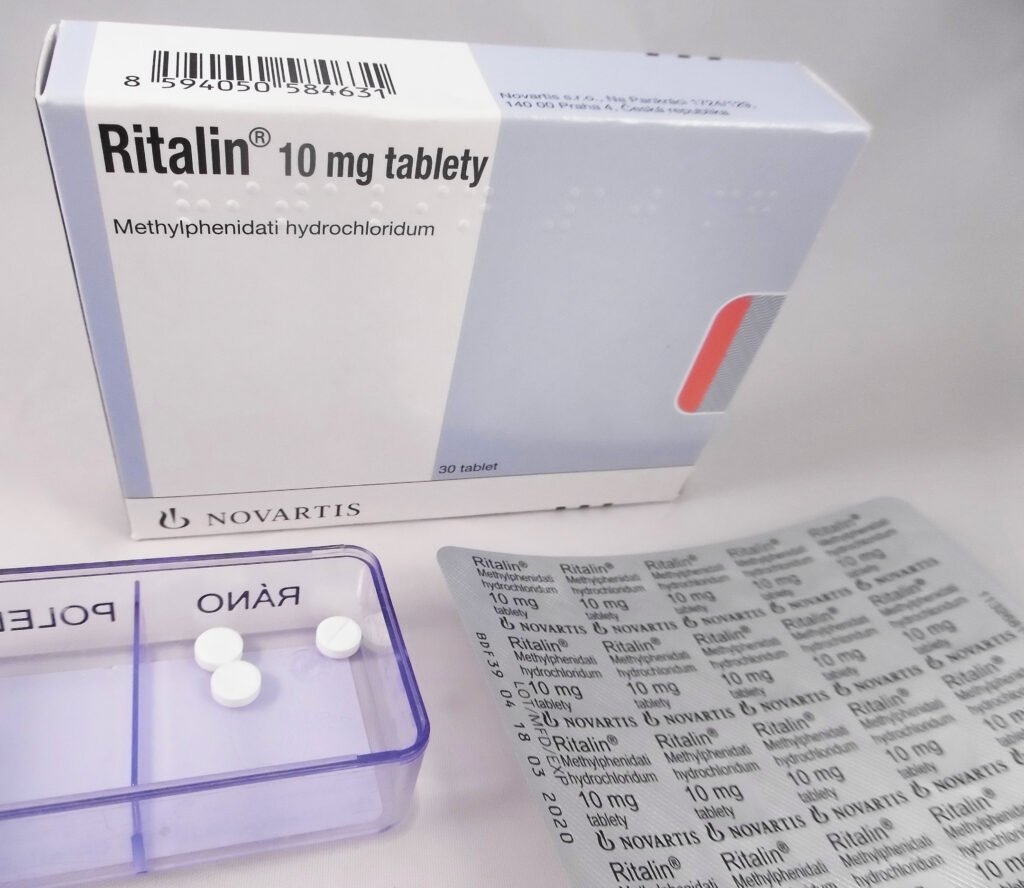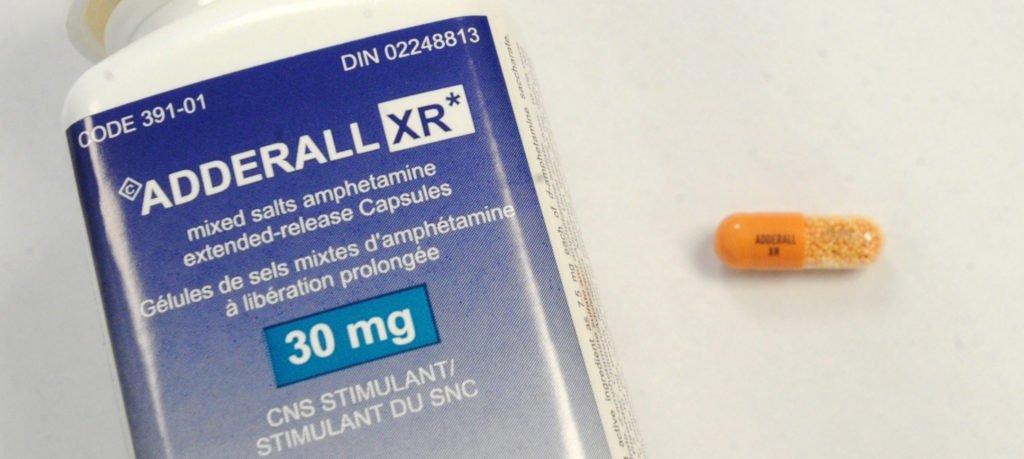Introduction
Attention Deficit Hyperactivity Disorder (ADHD) is a multifaceted neurodevelopmental condition that can impact individuals across the lifespan. This disorder is characterized by a constellation of symptoms, including inattention, hyperactivity, and impulsivity. In this article, we will explore the various facets of ADHD, its common symptoms, and the treatment options available, with a specific emphasis on the use of amphetamine-based medications in its management.
ADHD manifests differently in everyone. Some may struggle with maintaining focus, making it challenging to complete tasks or follow instructions. Others may exhibit hyperactivity, appearing restlessly active even in quiet settings. Impulsivity can also be a hallmark feature, leading to hasty decisions without considering the consequences.
Effective management of ADHD often involves a multimodal approach, combining behavioral therapy, psychoeducation, and medication when necessary. Among the medications utilized, amphetamine-based drugs like Adderall and Dexedrine have gained prominence. These medications stimulate certain neurotransmitters in the brain, enhancing focus and impulse control. However, their use should be carefully monitored by healthcare professionals, as they can have side effects and potential for misuse.
ADHD Symptoms
ADHD manifests differently in everyone, but common symptoms include:
1. Inattention:
Inattention is one of the hallmark symptoms of ADHD and can manifest in various ways. Individuals with ADHD often find it challenging to maintain focus on tasks or activities, leading to frequent distractions. They may struggle to sustain attention to details, making careless errors in schoolwork, work projects, or other activities requiring concentration.
Another aspect of inattention is difficulty in following through on instructions and completing tasks. This can result in unfinished assignments, missed deadlines, and a sense of underachievement. Individuals with ADHD may often lose necessary items like keys, phones, or homework assignments due to their tendency to become easily distracted.
The inattention component of ADHD can significantly impact academic performance, work productivity, and daily life. It can lead to frustration, low self-esteem, and a sense of being overwhelmed by tasks that others may find routine.
2. Hyperactivity:
Hyperactivity is another core feature of ADHD, although it is present differently in children and adults. In children, hyperactivity typically involves restlessness, excessive fidgeting, and an inability to sit still when it’s expected. They may run, climb, or talk excessively, often in situations where it’s inappropriate.
In adults, hyperactivity may manifest more subtly as inner restlessness or a constant need to be “on the go.” While adults with ADHD may not exhibit the same physical hyperactivity as children, they often describe a racing mind, a sense of being unable to relax, and a compulsion to engage in multiple activities simultaneously.
Hyperactivity can lead to difficulties in maintaining orderly routines, following instructions, and completing tasks that require sustained effort. In both children and adults, it can result in strained relationships and challenges in academic or work settings.
3. Impulsivity:
Impulsivity is the third key component of ADHD and involves acting without thinking about the consequences. Individuals with ADHD may interrupt others during conversations, blurting out comments or questions before the other person has finished speaking. They may struggle with waiting their turn in lines or games, often becoming impatient.
Impulsivity can also lead to risk-taking behaviors, as individuals with ADHD may not fully consider the potential dangers of their actions. This can have significant implications in terms of safety and decision-making.
In educational settings, impulsivity can lead to disciplinary issues, while in work environments, it can result in misunderstandings and strained relationships with colleagues.
Impact on Daily Life:
The combination of inattention, hyperactivity, and impulsivity can create substantial challenges in daily life for individuals with ADHD. In children, it can affect their academic performance and social interactions, potentially leading to low self-esteem and feelings of inadequacy.
For adults, ADHD symptoms may impact work performance, time management, and personal relationships. They may struggle to meet deadlines, have difficulty organizing their tasks, and find it challenging to maintain focus during meetings or conversations.
Signs of ADHD in Children and Adults
Signs of ADHD in Children:
Poor School Performance:
One of the most common signs of ADHD in children is academic struggles. Children with ADHD often find it challenging to concentrate on tasks and follow through with assignments. They may frequently make careless mistakes in their schoolwork and have difficulty organizing their materials.
Forgetfulness:
Forgetfulness is another hallmark sign of ADHD in children. They might forget to turn in homework, bring necessary supplies to school, or complete tasks at home. This forgetfulness can result in academic difficulties and frustration for both the child and their parents or teachers.
Impulsive Behavior:
Impulsivity is a core symptom of ADHD in children. This can manifest as interrupting others, blurting out answers in class, and difficulty waiting their turn. These impulsive behaviors can lead to social challenges and disciplinary issues at school.
Hyperactivity:
In some cases, children with ADHD may exhibit hyperactivity. They may have difficulty sitting still, constantly fidgeting, or engage in excessive physical activity, even in situations where it’s not appropriate.
Difficulty Following Instructions:
Children with ADHD may struggle to follow through on instructions, whether at home or in school. They may become easily distracted and fail to complete tasks as directed.
Signs of ADHD in Adults:
Chronic Disorganization:
In adults with ADHD, chronic disorganization is a prevalent sign. They may have difficulty keeping track of appointments, tasks, and deadlines. This can lead to missed meetings, forgotten commitments, and a sense of being overwhelmed.
Time Management Challenges:
Adults with ADHD often struggle with time management. They may frequently underestimate the time needed for tasks and end up running late or missing deadlines. This can affect their professional life, leading to work-related stress and difficulties.
Impaired Concentration:
Adults with ADHD may have trouble maintaining focus on tasks, whether at work or in personal projects. They may start multiple tasks but struggle to complete them, leading to unfinished projects and a sense of frustration.
Relationship Issues:
ADHD can impact personal relationships, with adults exhibiting symptoms of impulsivity and forgetfulness. This can result in misunderstandings, conflict, and difficulties in maintaining healthy relationships with partners, family members, and friends.
Restlessness:
While hyperactivity tends to decrease in adulthood, some adults with ADHD still experience restlessness. They may feel a constant need to be “on the go” or engage in multiple activities simultaneously.
Consequences of Untreated ADHD:
Recognizing the signs of ADHD in both children and adults is crucial because untreated ADHD can have significant consequences. In children, it can lead to academic underachievement, lower self-esteem, and difficulties in forming friendships. In adults, untreated ADHD can result in professional challenges, including job instability and difficulties in career advancement. Relationship issues and a lower quality of life are also common outcomes.
ADHD Treatment
Effective management of ADHD can lead to significant improvements in one’s daily life. Treatment approaches include:
Medication:
Amphetamines and methylphenidate-based medications, such as Buy Adderall Online and Buy Ritalin Online, are commonly prescribed to manage ADHD symptoms. These medications work by increasing the levels of certain neurotransmitters in the brain, improving focus and impulse control.
Behavioral Therapies:
Behavioral therapies like Cognitive-Behavioral Therapy (CBT) can help individuals with ADHD develop coping strategies, improve time management, and enhance organizational skills.
Lifestyle Modifications:
Regular exercise, a balanced diet, and adequate sleep can complement other treatments and contribute to overall well-being.
The Role of Amphetamine in ADHD Treatment
Buy Amphetamine Online medications, commonly known as stimulants, have long been a mainstay in the treatment of attention deficit hyperactivity disorder (ADHD). These medications, including Adderall and Ritalin, are renowned for their effectiveness in managing ADHD symptoms.
The mechanism of action is based on their ability to increase the levels of two key neurotransmitters, dopamine, and norepinephrine, in the brain. These neurotransmitters play pivotal roles in regulating attention, impulse control, and executive functions. By elevating their levels, amphetamine-based medications help individuals with ADHD improve their attention span, focus, and self-control, ultimately enhancing their daily functioning.
It’s important to note that the use of these medications should be closely supervised by healthcare professionals to ensure safe and effective treatment. When appropriately prescribed and monitored, amphetamine-based medications can significantly improve the quality of life for individuals with ADHD, providing them with the tools they need to manage their symptoms and achieve their full potential.
Benefits of Amphetamine-based Medications:
1.Rapid Onset of Action:
One of the notable advantages of amphetamine-based medications is their rapid onset of action. Individuals often experience relief from ADHD symptoms shortly after taking these medications. This quick response can be especially beneficial for managing day-to-day challenges related to focus, attention, and impulse control. It allows individuals to engage more effectively in academic, professional, and personal activities, leading to enhanced productivity and satisfaction.
2. Increased Focus and Concentration:
Buy Amphetamine Online-based medications are renowned for their ability to enhance focus and concentration. For individuals with ADHD, maintaining attention on tasks can be a significant challenge. These medications help by increasing the levels of neurotransmitters like dopamine and norepinephrine in the brain, which are crucial for regulating attention. As a result, individuals can concentrate more effectively, stay on task, and complete assignments or projects with greater accuracy and efficiency.
3. Improved Impulse Control:
Impulsivity is a common symptom of ADHD, often leading to impulsive actions or comments without considering the consequences. Amphetamine-based medications can help mitigate this impulsivity by promoting better self-control. Individuals on these medications may find it easier to think before acting or speaking, leading to more measured and thoughtful behavior. This can have positive effects on social interactions, relationships, and overall decision-making.
4. Enhanced Academic and Professional Performance:
Amphetamine-based medications can be particularly beneficial for students and professionals with ADHD. By improving focus, attention, and impulse control, these medications can lead to better academic performance, increased productivity at work, and overall success in these domains. Students may find it easier to study, complete assignments, and perform well on exams, while professionals can enhance their job performance and career prospects.
5. Improved Quality of Life:
The benefits of amphetamine medications extend beyond academic and professional settings. They can contribute to an improved quality of life for individuals with ADHD. By addressing core symptoms, these medications can reduce frustration, increase self-esteem, and help individuals better manage their daily responsibilities and relationships. This, in turn, can lead to a greater sense of well-being and life satisfaction.
Important Considerations:
While amphetamine-based medications offer significant benefits, it’s essential to approach their use with caution and under the guidance of qualified healthcare professionals. Some important considerations include:
Prescription Requirement:
These medications should only be obtained with a prescription from a healthcare provider who can assess the individual’s specific needs and monitor their response to treatment.
Individualized Treatment:
The dosage and type of amphetamine-based medication should be tailored to the individual’s unique requirements. What works for one person may not be suitable for another, and adjustments may be necessary over time.
Potential Side Effects:
Amphetamine-based medications can have side effects, including increased heart rate, reduced appetite, and potential mood changes. These side effects should be monitored, and any concerns should be discussed with a healthcare provider.
Risk of Misuse:
Stimulant medications have the potential for misuse and addiction, particularly when taken at higher doses or by individuals without ADHD. It is crucial to keep these medications secure and use them only as prescribed.
Conclusion
Attention Deficit Hyperactivity Disorder (ADHD) is a complex neurodevelopmental condition that impacts individuals of all ages. It is characterized by a combination of symptoms, including inattention, hyperactivity, and impulsivity, which can significantly affect various aspects of daily life.
Recognizing the signs and symptoms of ADHD in both children and adults is crucial for early diagnosis and intervention. Left untreated, ADHD can lead to academic challenges, professional difficulties, and strained personal relationships. However, with proper management, individuals with ADHD can achieve their full potential and lead fulfilling lives.
Effective management of ADHD often involves a multifaceted approach, combining behavioral therapies, lifestyle modifications, and, in some cases, medication. Buy Amphetamine Online without prescription medications, such as Adderall and Ritalin, have proven to be valuable tools in the treatment of ADHD. They work by increasing the levels of neurotransmitters in the brain, enhancing focus, attention, and impulse control.
The benefits of amphetamine-based medications include rapid onset of action, improved concentration, enhanced impulse control, and better academic and professional performance. However, it’s essential to use these medications under the supervision of qualified healthcare professionals to ensure safe and effective treatment.
Ultimately, the goal of ADHD treatment is to empower individuals to manage their symptoms, improve their quality of life, and reach their full potential. By understanding the multifaceted nature of ADHD and the available treatment options, individuals, families, and healthcare providers can work together to support those affected by this condition on their journey towards success and well-being.





